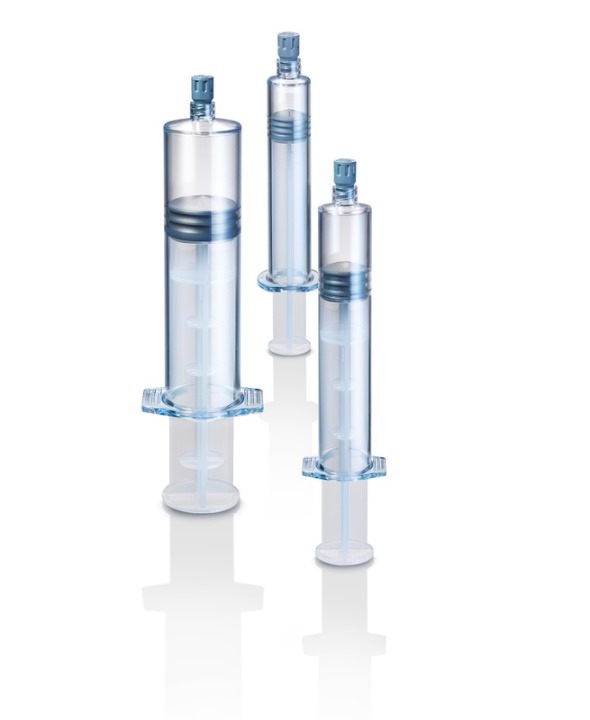Nov 13 2013
SCHOTT expanded its range of TopPac polymer syringes to include a 20 milliliter (ml) format that can be used in combination with syringe pumps for infusion therapy. SCHOTT TopPac® prefillable syringes (PFS) simplify the infusion therapy preparation process and can ultimately reduce costs for pharmaceutical companies and health care facilities. With this move, SCHOTT is enhancing its portfolio of large volume syringes for intensive care, which already includes 10 ml and 50 ml formats. SCHOTT TopPac PFS are available in the sizes 1 to 50 ml, and will be on display at the American Association of Pharmaceutical Scientists (AAPS) Annual Meeting and Exposition in San Antonio, Texas on November 11 to 14, 2013 at booth #4209. The new TopPac 20 ml PFS will become available in December 2013.

SCHOTT will be expanding its range of TopPac polymer syringes to include a 20 milliliter (ml) format that can be used in combination with syringe pumps for infusion therapy.
TopPac PFS are compatible with various syringe pumps, and the exact outer diameter enables automated recognition by the syringe pumps. The syringes are also compatible with intravenous (IV) devices, e.g., needleless luer access devices (NLADs). TopPac PFS’ optimized siliconization ensures consistent gliding forces for smooth drug application and also reduces the interaction of silicone with the drug throughout their shelf lives.
Improved safety in infusion therapy
Health care professionals often rely on infusion therapy in clinical settings, such as intensive care units, critical care, emergency rooms, and surgery centers. Pain medications, anesthetics, and cardiovascular medications are the most common medications administered through syringe pumps. Since the majority of these medications have a narrow margin of safety, the delivery of the right drug, in the right concentration, at the right dose is critical. Even seemingly minor errors might cause significant harm to patients. Current practices often involve a manual, multi-step preparation process to transfer drugs from their primary containers, such as ampoules or vials, to disposable syringes, yet this process is prone to human error. PFS simplify the preparation process and significantly reduce the likelihood of medication errors.
SCHOTT has designed TopPac syringes to support the zero-tolerance practice for infusion-related adverse events. The syringes are prefilled with the accurate dose of the correct medication by pharmaceutical companies, and this process significantly reduces the risk of medication errors. This also ensures timely medication delivery because medical personnel can more quickly prepare and administer the drug. An integrated luer lock syringe assures a leak-proof connection between the syringe and the IV line, and reduces the risk of unintended disconnection. These syringes also offer a high break resistance because they are made of polymer material.
SCHOTT manufactures TopPac in a fully integrated, clean-room production environment, which ensures low contamination and particle levels without washing. The syringes are supplied in common nests and tubs, which can be integrated into existing filling lines. The transparency of the cyclo olefin copolymer (COC) raw material used in TopPac PFS also facilitates visual inspections on the filling lines. The benefits of TopPac syringes translate into reduced total cost of ownership for pharmaceutical companies and health care facilities.